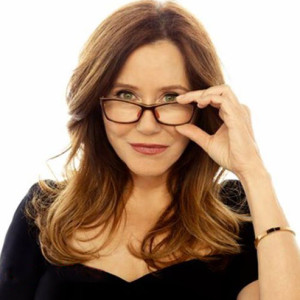By M. Sharpe
 In Part I of our interview with Mary McDonnell, she discussed the evolution of the relationships between the characters on Major Crimes, and how that on-screen familiarity has translated cinto a true off-screen camaraderie with her cast and crew. The strong behind-the-scenes friendships have been more valuable than ever this season, as the cast and crew have had to balance their longest season ever with their personal lives. It seems fitting then that balance has been revealed to be the theme of season five of Major Crimes, as in Part II of our interview, McDonnell reveals her own challenges in balancing the personal and professional halves of Sharon Raydor’s life. McDonnell herself has worked to find balance between bringing Captain Raydor to the screen, and continuing to deepen her commitment to her other passions, and for the first time discusses her charity work with Sinte Gleska University, a tribal college on the Rosebud Reservation in South Dakota, which she first became aware of during the filming of Dances with Wolves.
In Part I of our interview with Mary McDonnell, she discussed the evolution of the relationships between the characters on Major Crimes, and how that on-screen familiarity has translated cinto a true off-screen camaraderie with her cast and crew. The strong behind-the-scenes friendships have been more valuable than ever this season, as the cast and crew have had to balance their longest season ever with their personal lives. It seems fitting then that balance has been revealed to be the theme of season five of Major Crimes, as in Part II of our interview, McDonnell reveals her own challenges in balancing the personal and professional halves of Sharon Raydor’s life. McDonnell herself has worked to find balance between bringing Captain Raydor to the screen, and continuing to deepen her commitment to her other passions, and for the first time discusses her charity work with Sinte Gleska University, a tribal college on the Rosebud Reservation in South Dakota, which she first became aware of during the filming of Dances with Wolves.
Four years into her journey of playing Captain Sharon Raydor, McDonnell says her focus this season is ensuring that Raydor does not become complacent in her position now that she’s achieved stability and success within her role as the head of the Major Crimes division. “My biggest challenge right now is in finding ways to deepen her commitment to the workplace when sometimes the writing may or may not indicate that. She is discovering I think, the more she keeps this job, the more she likes it. And the closer she gets to the individuals she’s working with, the more she feels like this is the right place to be. And yet, she could retire. She has different things that have been offered to her. So it’s a very interesting thing for me, the actress, to focus Sharon’s mind into the work in a way that’s really fascinating and deeper. For me to help Sharon ask some bigger questions of herself, and find better ways to get the job done more quickly and more profoundly.”
While viewers have often commented on Raydor’s absence from the initial crime scenes, McDonnell says that is a conscious choice on the part of the writers. However, she notes that not being present for those scenes often confronts her with an additional challenge in how she is able to approach accessing the emotions of her character without that essential first encounter with the victim. “Sharon not being present at the crime scene is very accurate from what her position would be, and it balances out our ensemble in a very healthy manner, by giving Lt. Provenza the opportunity to utilize his position and longevity to run the crime scene, while she runs the division. But as an actress, not being viscerally present at the crime scenes – not walking through them, not being the first responder, not having the action sequences and the heart pounding, car chasing moments – as an actress then you have to fill that in. You have to fill in the connection to your victim, and your commitment to finding the perpetrator. You have to fill in your connection to the victimized, and the families.” Continue reading →

 In
In  Residents of Chicago and surrounding areas, don’t miss your chance to meet Mary McDonnell next weekend at the Chicago Comic atand Entertainment Expo (C2E2), March 18-20, 2016 at McCormick Place Convention Center.
Residents of Chicago and surrounding areas, don’t miss your chance to meet Mary McDonnell next weekend at the Chicago Comic atand Entertainment Expo (C2E2), March 18-20, 2016 at McCormick Place Convention Center.
 Four seasons into TNT’s hit series Major Crimes, viewers have developed a personal connection to the LAPD’s fiercely loyal Captain in the same way that her detectives have developed a devotion to her. For Raydor, family extends beyond the people with whom she shares bloodlines or family names. For Mary McDonnell, the chance to portray a woman of equal emotional and intellectual strength and integrity is a source of joy for her as an actress.
Four seasons into TNT’s hit series Major Crimes, viewers have developed a personal connection to the LAPD’s fiercely loyal Captain in the same way that her detectives have developed a devotion to her. For Raydor, family extends beyond the people with whom she shares bloodlines or family names. For Mary McDonnell, the chance to portray a woman of equal emotional and intellectual strength and integrity is a source of joy for her as an actress.